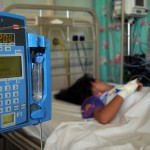
People with Down’s syndrome are more likely to develop dementia than others and one in three will have the illness as early as in their 50s. Despite this high prevalence, there is very little reliable research about drug treatments for this population. This small randomised controlled trial (funded by the drug company Lundbeck) aimed to [read the full story…]








